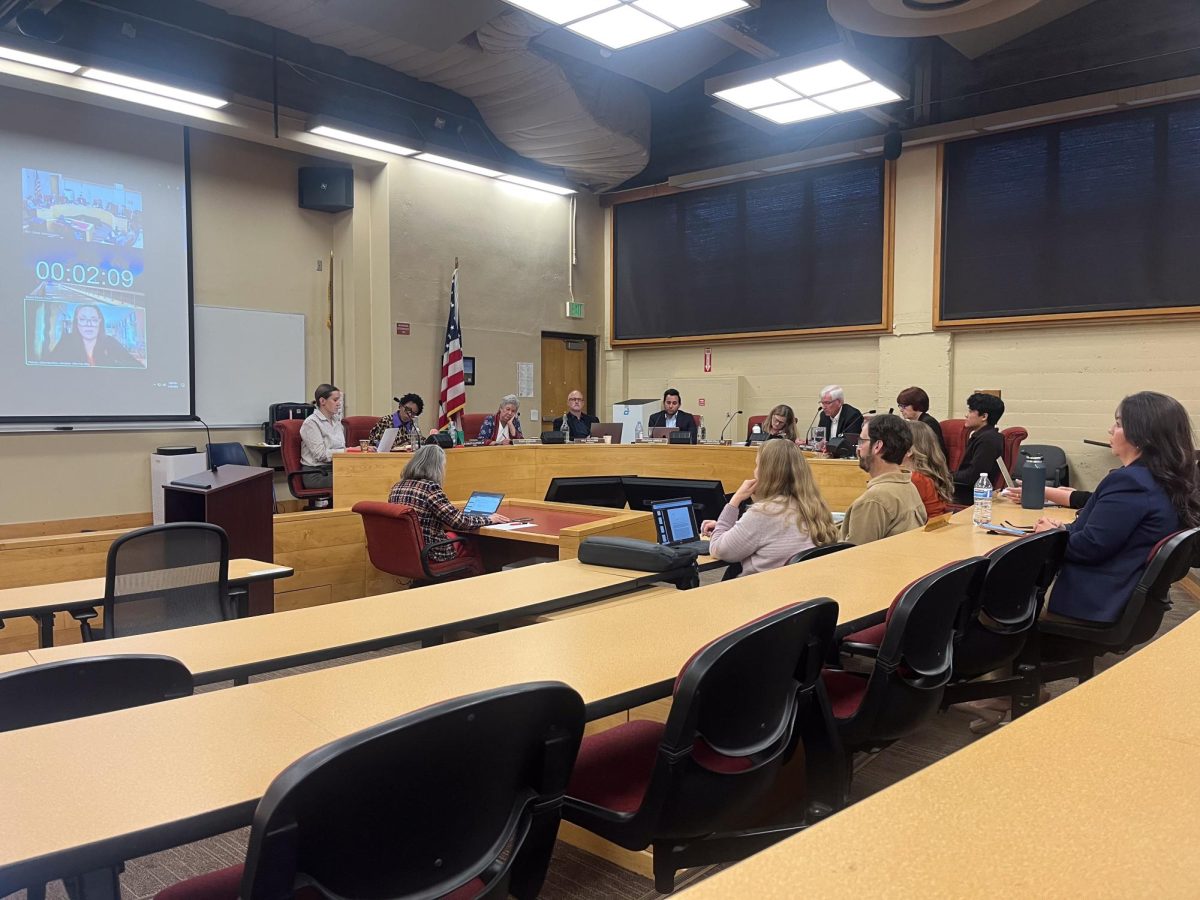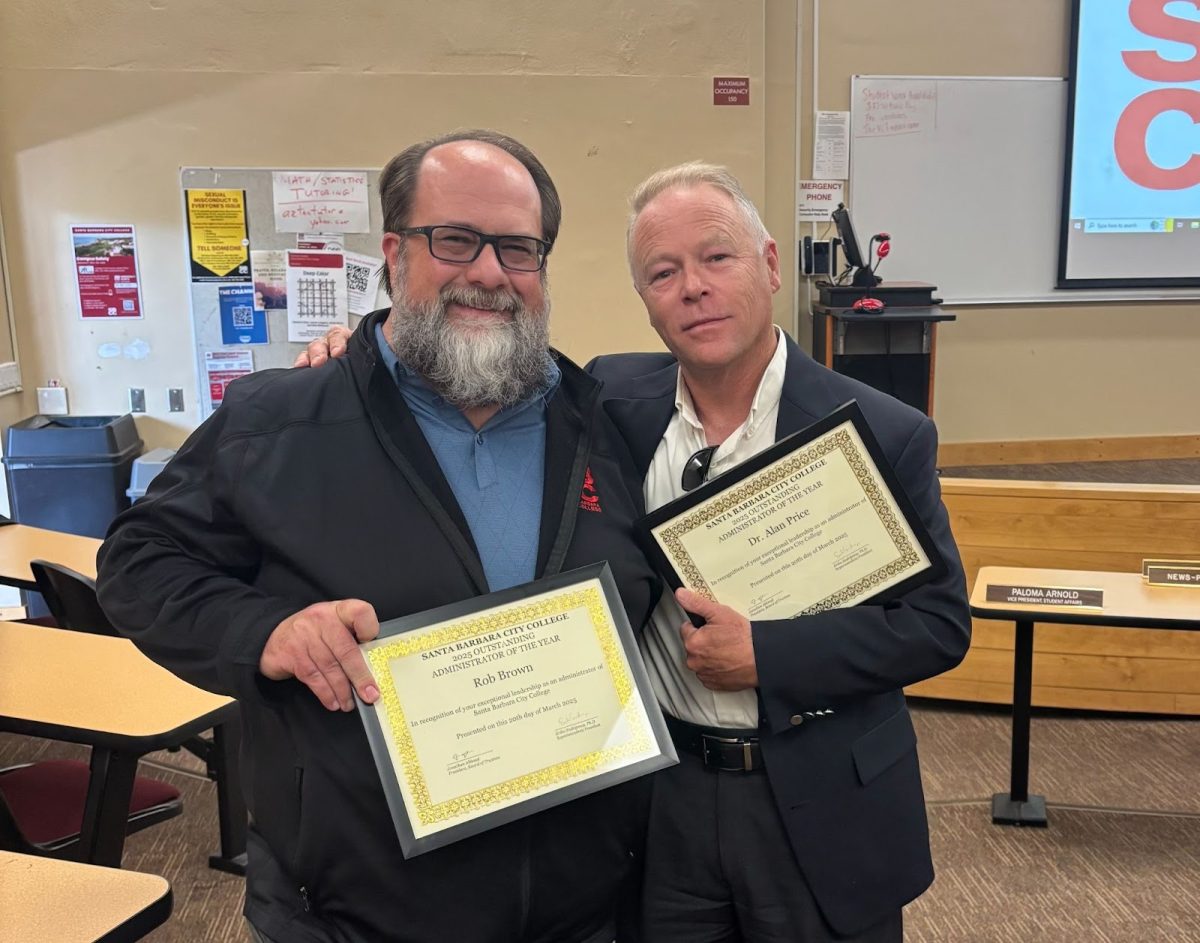Public Radio Host Ira Glass unveiled the secrets to good storytelling in a lighthearted evening of laughs and quirky flashbacks on Saturday, Oct. 7, at the Granada Theatre.
“Great stories happen to those who can tell them,” the Baltimore-born radio host said, joking about interviewees who can’t communicate good stories. “As far as I’m concerned, they just didn’t deserve the experience.”
Glass, the host and creator of “This American Life,” spoke to a fully-packed audience about eight lessons he’s learned in the talk titled “Seven Things I’ve Learned.” The event was sponsored by Suzi and Glen Serbin.
Glass opened the evening with a handful of jokes and casual small-talk before launching into his set.
“So I’m here to tell you a bunch of stories,” he said, emulating the silly, casual conversation he might slip into when chatting with friends at home.
Glass discussed what makes up a story and cited “motion” as the most powerful ingredient in storytelling. According to him, the simple forward momentum of events is enough to engage the reader and create suspense.
“That momentum can pull you in and pull you forward no matter how banal the facts of the story are,” Glass said.
Glass started his career as a 19-year-old intern at National Public Radio’s Washington, D.C. headquarters, and from there took on a whole range of production jobs.
In 1995, Glass collaborated with Chicago Public Media and started a journalistic non-fiction program called “This American Life,” a show that would later win five Peabody Awards and be heard by more than 2.2 million listeners weekly.
Dressed in a slick black suit, Glass had a tablet in his hand during the entire talk, using it to live-mix audio and video clips. He wove the clips through his anecdotes, which, though always ordinary, ranged from silly and absurd to sad and profound.
One story was about a regretful mother who accidentally told her daughter she looked better in make-up. Another revolved around a little girl whose great dream was to be a mascot, for the simple reason that she liked acting like a dog.
“It blew her mind that someone was allowed to be in an animal costume, like all the time,” Glass said with a laugh.
The story ended with the girl taking her obsession so far as to defecate in her own backyard, a sign she was taking after the family’s cherished canine.
“So that’s how you tell that your kid is gonna be a mascot someday,” Glass said as the audience hollered with laughter.
Glass’ more emotional moment came when he described his recent experience of seeing “Fiddler On The Roof” in New York, a play his mother used to take him to when he was a child.
While watching the performance, Glass realized how much the play’s story structure had mirrored the story structure he emulated in his own reporting and eventual storytelling on “This American Life.”
The stories on his radio show would be light and funny in the beginning, but then end with a “bigger something.” They would pan out to greater issues, Glass explained, just like “Fiddler On The Roof.”
Glass reflected on the play’s lasting impact on his life. It brought him back to thoughts about his mother.
“I think when you’re a parent, you throw so much stuff at your kid, and most of it they don’t like,” Glass said.
“It would have pleased her to understand how I took it to heart,” he said, referring to his mother, “and that this thing that gave her so much pleasure does the same thing for me.”
Glass’ revelation was that those early childhood memories of watching plays with his mother trickled into all the storytelling he had done.
The theater went fully silent as Glass’ tone took on a tinge of remorse.
“I wish that I could’ve told my mom I figured this out,” he said.







